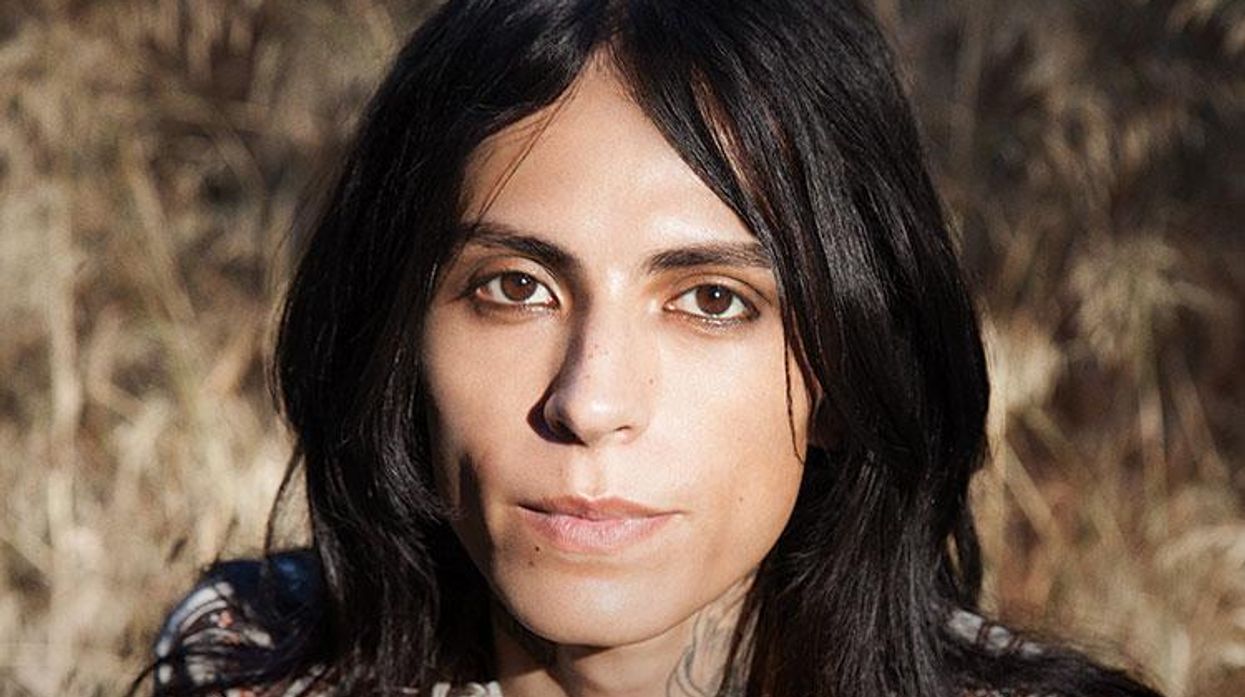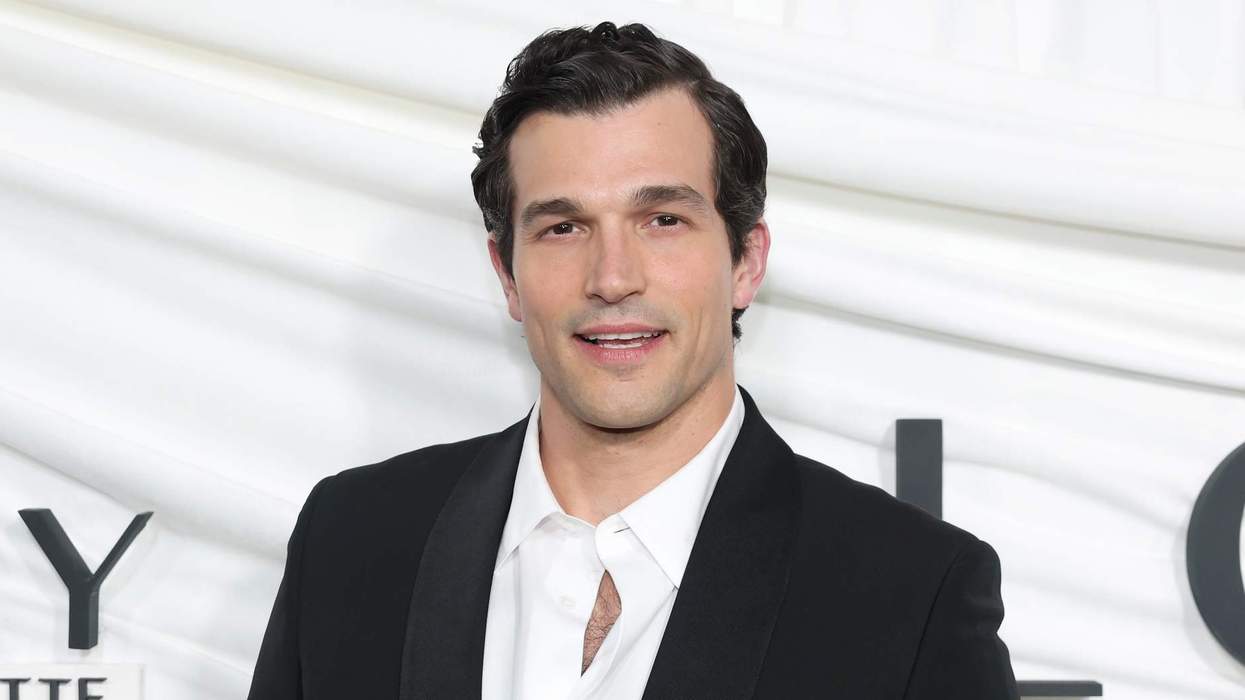Photography by Jeaneen Lund. Hair and Makeup by Tsipporah Liebman using MAC Cosmetics.
Movement has always been a constant for Elysia Crampton. The producer, whose experimental compositions are as rich and textured as the history that informs them, has spent much of her life in different parts of the world, many of which add deeper meaning to her music.
"Even if I'd been in a small town my whole life, I think I would have found a way to construct fantasy and a way of negotiating with whatever reality I'm trying to understand at the time," says the Bolivian-American artist, who grew up in Montemorelos, Mexico, and now lives in Sacramento. "Cities can be very reflective places -- in fact, so reflective that you don't actually see the reality going on in them."
Crampton architects a space of her own on her latest album, Elysia Crampton Presents: Demon City. Described by NPR as an "epic poem," the seven-track set is abrasive and enveloping all at once, corralling a team of collaborators including Rabit, Why Be, Chino Amobi, and Lexxi to flesh out the "raw data" Crampton initially supplied. "A lot of the songs are more like my friends performing me," says Crampton, who, while recording the LP, was inspired by Aymaran history (Aymaran is an umbrella term that encompasses those indigenous to Altiplano and the Andes in South America) and its culture of queerness.
Like much of her work, Demon City is complex and cerebral, and Crampton's explanations of its material are equally weighty. With its electronic scribbles accenting a hypnotic string loop, "After Woman (for Bartolina Sisa)" is almost entirely instrumental, but the song is specifically based on the story of Sisa, an indigenous revolutionary who was captured, executed, and cut into parts that were distributed to several Bolivian villages as a reminder that the Spanish government had the real power.
The track is also a nod to Crampton's roots and how they've shaped her identity.
"Coming from a historical perspective, I can see that my voice is not my own -- it was never my own," she says. "It was constructed by structures that preceded me -- the state structures, the hegemonic structures, and literally the material structures that make me -- which come from this indigenous Aymaran background. The Aymaran people made me, so they're making some of my voice, however compromised or contradictory that position is."
While Crampton speaks of her music in highly academic terms, quoting intellectuals and scholars like Hortense Spillers, Eva Hayward, and Karen Barad, she is the author of her own history, which has little to do with the conventional. She is a transgender woman and says she was "always thankfully queer." She started dabbling in music in 2008, making edits of pop songs by artists like Justin Bieber under the name E+E. It wasn't until last year that she released American Drift, her four-track debut under her own name. Reviews of it were effusive, the album establishing her as one of today's most intriguing, boundary-pushing beatmakers.
She rebuffs categorizing her sound, but Crampton is often described as a dance artist, even though her arrangements bear few obvious hooks and reject standard BPM formulas. She's also aware that her presence as a transgender person of color in dance music makes her an outlier, but she'd rather focus on the benefits that provides.
"What I'm more interested in are my own privileges and how I'm able to be a voice for those who still aren't voiced but who are threaded through my voice at the same time," she says. "Maybe that goes back to the idea of ownership or recalculating what the whole sense of ownership would be outside of a capitalist notion of an individual. I'm more interested in locating my privileges -- the privileges of being part of that world -- and using those privileges the best I can."
For her next project Crampton plans to tap into a different sort of history. Rather than release another album, she'll record an audiobook about the Quetzalcoatlus, a pterosaur that experts consider one of the largest-ever flying animals.
"Now that I travel more, I was thinking about how reliant I am on plane flight, and how violent and terrible that is," she says.
"I'm contracted for two albums on the label I'm on now. I was inspired by this one American paleontologist, so part of the work might be connecting with that. So yeah, that's the project... If I don't get fired."
Like what you see here? Subscribe and be the first to receive the latest issue of Out. Subscribe to print here and receive a complimentary digital subscription.































